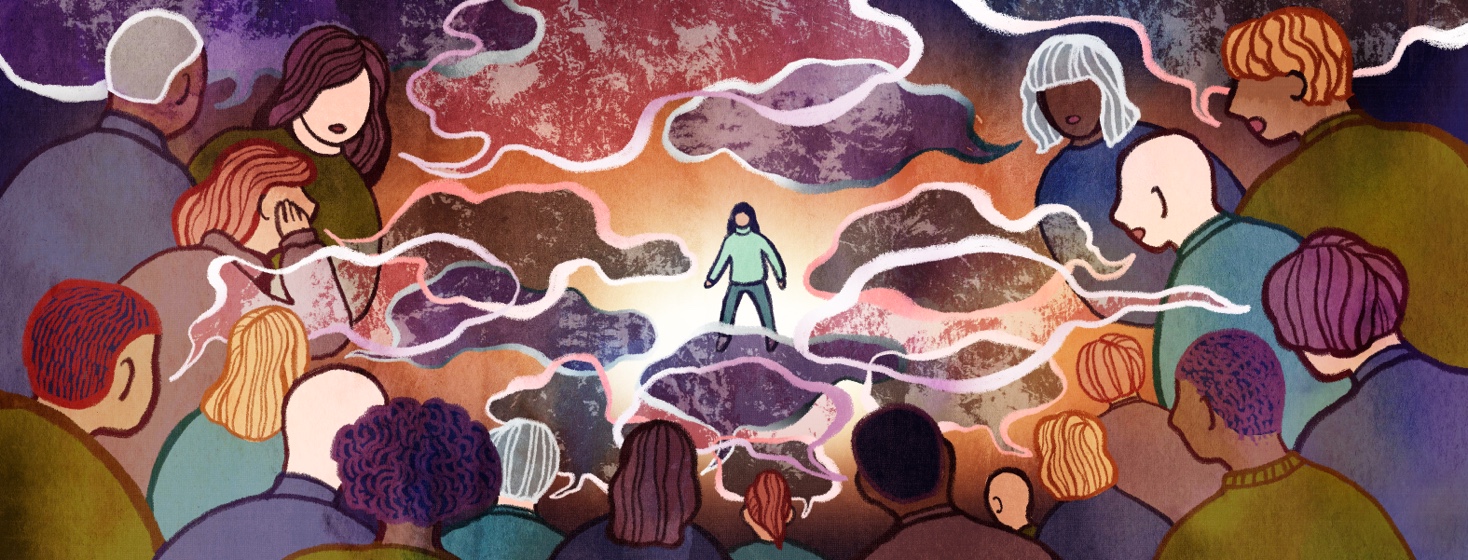The Good Intentions of Others
“The road to hell is paved with good intentions,” or so the saying goes. That's a little rough, but the meaning is clear. On their own, good intentions are fine; they just aren't enough.
As you or your loved one traverse the difficult road of advanced breast cancer, you'll run into a lot of people who, meaning well, will irk you no end.
“I only want to help”
Whether it's via social media, telephone calls, visits, or emails (likely all of these) you'll receive mountains of advice, articles, and websites promising you a miraculous recovery if only you “Try this!”. You'll hear it all.
From carrot juice to cannabis, essential oils to special diets, magnetic bracelets to chakra cleansing, you'll hear all the ways you're not doing it right, or how you could do it better.
Featured Forum
View all responsesPeople mean well
I know people mean well. They have the best intentions, but they need to leave treatments and medications to the professionals. Your breast cancer medical team has spent years, indeed decades, studying and treating cancer.
They have access to the latest medical and scientific studies, and the newest treatments available. If drinking carrot juice every day, or wearing a particular crystal did anything, they would know.
Dancing as fast as you can
While undergoing cancer treatments, my wife received mountains of free advice from people she knew. Finally, it got so overwhelming for her that I had to drop a post in our Facebook cancer group to please stop sending her these things.
Not only did it exhaust her to educate the armchair specialists; but it also put the onus on her, implying she wasn't doing all she could to stay alive. You're dancing as fast as you can anyway. You don't need well-meaning people throwing in new steps that lead nowhere.
What can I do?
Now for you, that loyal and well-meaning friend. If you really want to help a loved one with cancer, put your good intentions into action. A week of prepared meals, a care package of bath salts, lotion, and other self-care items, or bringing over a favorite drink for a little chat session are great boosters, and they do much more for a patient than a text full of web links, or a huge book of recipes they can't even begin to prepare.
What can I say?
Frankly, nothing. All your loved one needs is support. Instead of asking, "Have you read..." say, "You have a great team of doctors, and I'm sure they're doing their best for you". Instead of pontificating, ask questions, and, more importantly, ask if there's anything you can do to help them. Maybe the dishes or laundry are undone, or maybe the house needs vacuuming. It can be as simple as that.
A friend of ours, knowing that neither my wife nor I could vacuum—she due to breast cancer and I due to a recent knee replacement—brought over her Lowe's credit card and told me to go buy a Roomba. I can't begin to tell you how much that helped us, me particularly. It's a kindness I'll never forget.
Small things matter too
Not everyone is in a position to gift something so expensive, and that's okay. Small things matter too. Making a run to the grocery store or picking up prescriptions means no less. Sometimes, the cancer patient lives far away and you don't know how to help. That's where a phone conversation or a 'thinking of you' card can work minor miracles.
Help that means a lot
And finally, back to you, my dear one going through such a hard time with advanced breast cancer. When people step up to comfort or support you, it means so much, and it reminds you of how rich you are in friends and family. It's up to you to accept the help you are offered. Don't be shy about speaking up. Drink the carrot juice if you like it, and wear the magnetic bracelet. They won't hurt you, but at some point, you just may need to ask your caregiver to step in and remind people that good intentions often cause more harm than good.

Join the conversation